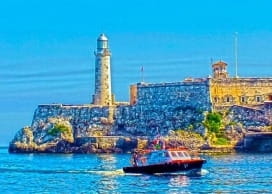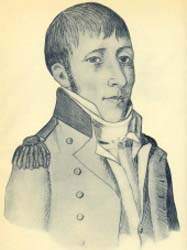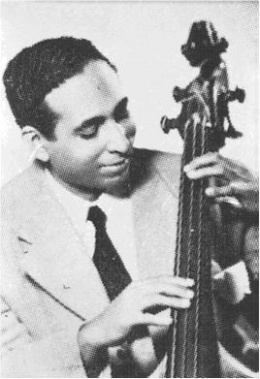
Havana ephemeris. August 28.
1762. José Agustín Caballero y Rodríguez de la Barrera is born in Havana.

In his work as a man of science, in his writings he reflected the concern for the existing backwardness in Cuba in terms of education, science and illustration. Bearer of new doctrines, he influenced the rebirth of philosophical concerns, in education, as well as in matters of public morality.
He was a promoter of cultural changes and the first to seek his own direction in philosophy. He was the most important figure of the philosophical reform on the island. He directed his efforts towards the criticism of scholasticism on the one hand and towards the introduction of modern philosophy.
He died in Havana on April 6, 1835.
1764. Manuel de Zequeira y Arango is born in Havana.

He was a poet, journalist, soldier and public official. He is considered the first Cuban poet, not in the chronological sense (honor reserved for Silvestre de Balboa), but in the symbolic one, for his lyrical quality and vocation, and for his conscious knowledge of his poetic instrument.
He is also called the first poet of sustained vocation. He recreated the tenth of him by giving it a more cultured treatment, without losing his natural grace.
His death occurred in Havana on April 19, 1846.
1908. Orestes López Valdés is born in Havana.
He was a composer, double bass player and cellist, a founding member of the National Symphony Orchestra. Later he created another orchestra with which he worked as director, composer and arranger. He enjoyed great popularity in the 1930s, when the danzonete was in fashion. In the middle of that decade he created the Unión Orchestra and later, in 1937, he joined the Arcaño y la Maravillas orchestra for more than 20 years, in which he played bass, cello and piano indistinctly. To him we owe the Mambo danzón, created in 1938, which began a new style of danzón, as well as many others that were performed by the same orchestra.
Along with Antonio Arcaño and the other members of his famous danzones orchestra, he turned out to be one of the Cuban musicians who would most freely integrate famous symphonic or operatic music themes into popular dance music in Cuba, and specifically the danzón.
He died on January 26, 1991 in the Cuban capital.
1961. Commander in Chief Fidel Castro delivers a speech at the closing of the first national production meeting held in Havana.

He points out: “We have done what magnates will never be able to do in their lives. In what way can the magnates in the United States - of the economy "on their own" - discuss problems and things before the American people? They cannot expose the succulent and shameful businesses that they have, the exploitation that they have everywhere. Its operations are secret.”
He also specifies: “Their democracy does not allow them to discuss a word before the people, nor do what amounts to a true democracy of the people. Because that is the democracy of the privileged minority. The masses do not count.”
